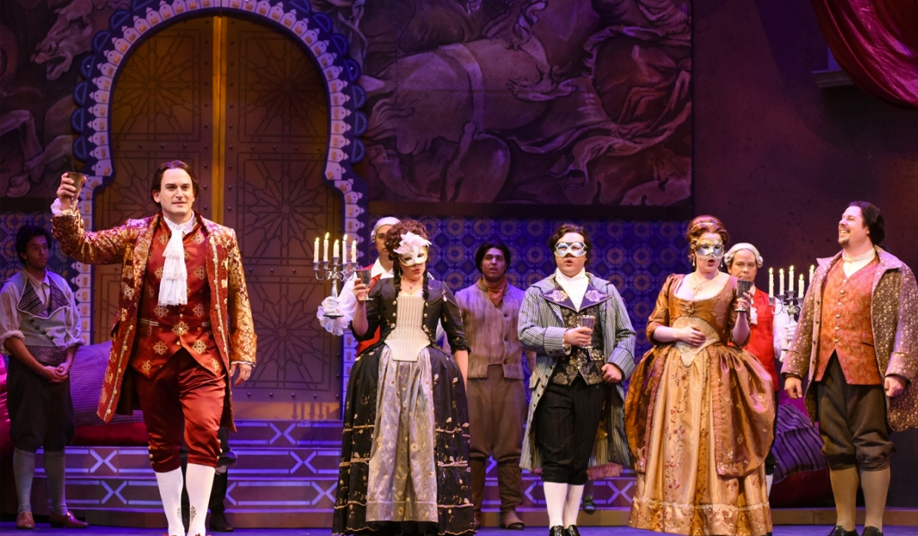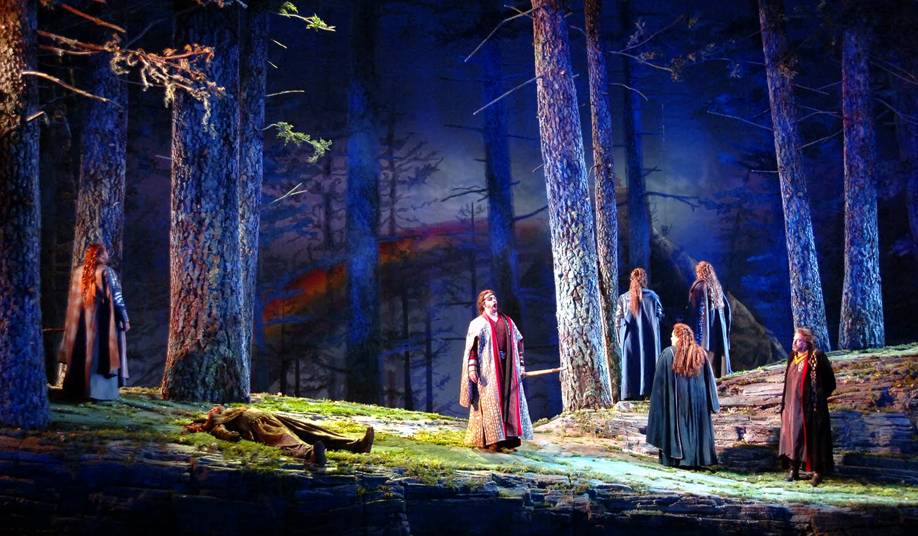A MANLY DEFENSE OF OPERA Let the Music Set You Free
I’ve never cared for the opera. Never listened to its music, disdained its hoity-toity atmosphere, couldn’t have named a song. In fact, all of my exposure to the opera came from the movies, and if the movies taught me anything it's that people usually get killed at operas or are haunted by the ghosts they’ve killed (see: The Godfather Part III, Batman Begins, The Talented Mr. Ripley, Quantum of Solace).
That all changed the fall of my senior year when I elected to take a course in the history of opera. My thinking at the time was that, although I’d had no interest in the subject whatsoever, opera was an artistic medium that humans have loved for centuries and if I didn’t dig in at some point and at least give it a chance, then I’d likely never engage with it properly. I’m really against writing off whole artistic mediums unless I’ve given them a fair shot to capture my attention.
If you’ve never seen an opera and feel relatively turned off by the idea, I suggest checking out the eight time Academy Award winning film, Amadeus, which chronicles the life of Mozart as told by an embittered rival composer who claims to have killed him. The movie is incredible and exposes you not only to the process one of the all-time great composers went through to create operas, but it gives you a great picture into the ways operas functioned in society and how much people appreciated them in their day. On top of all that, the film itself functions much like an opera with its heightened melodrama and epic scale.
Once you’ve seen Amadeus and are a little warmed up to the idea, go ahead and start checking out what your local opera house has to offer. On the one hand, opera has a grand old tradition of people getting dressed up and being “seen”, so tickets can sometimes be expensive. But on the other hand, opera is a dying art that’s being propped up by the donations of wealthy people so you can almost always find cheap tickets. I was stunned when I lived in New York City to find out that I could get tickets to some of the world’s best operas at the Met for around the same price as a movie ticket. And if you’re young, hold onto that student ID.
The experience of going to an opera is unlike any other experience. You should get dressed up (jeans are frowned upon, but you don’t need to go full tuxedo) and ideally take a date. There will be intermissions for drinks and discussion and milling about. Many opera houses have this unique feature where there are darkened screens for subtitles built into the backs of the seats so you can always follow the story without having to dart your eyes back and forth.
Where to Begin:

Don Giovanni
If you watched Amadeus, then you already got an introduction to the haunting (though likely apocryphal) backstory of the composition of Don Giovanni as Mozart worked out his issues surrounding his personal disappointment to his dead father. As a philandering dilatant himself, Mozart tells the legendary story of a Don Juan character, who comically seduces and abuses all the women (and men) that happen to cross his path. The opera boasts gorgeous music, infamous arias, and a surprising dark finale in which a statue comes to life and threatens to drag Don Giovanni to Hell if he doesn’t repent of his sins. He refuses the chilling warning and is in fact dragged to Hell. So that’s fun.

Der Ring des Nibelungen (or The Ring Cycle) by Richard Wagner
There’s a famous Mark Twain quote in which he promises that “Wagner isn’t as bad as he sounds.” Wagner didn’t write catchy tunes, instead he insisted that he was trying to create a new artistic medium in which all of the different arts coalesced: sound, music, design, staging, lights, costumes, etc. Wagner was the first man to darken the theater and only light the stage; he had no time for the showy attitudes of audience members—this was about the drama onstage. And boy is that drama something. Wagner’s four operas that form what is commonly called The Ring Cycle, making use of ancient Norse sagas to tell a grand tale involving a dragon slayer, a one ring of power, the god Odin, a couple falling in love and then realizing they’re actually siblings, and the destruction of the gods and the end of the world. If any of that sounds familiar, that's because two of the most famous epic story franchises of all time pull direct plot points from these operas: The Lord of the Rings and Star Wars. The latter in fact made famous use of a Wagnerian invention: the “leitmotif” which is the continual use of a melody around a certain character or theme such as the “Imperial March” accompanying Darth Vader.






